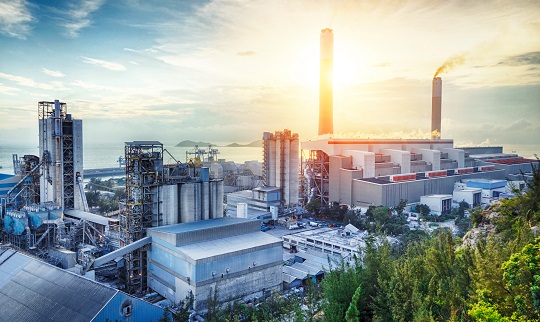Welding is a critical component of productivity and safety within the petrochemical industry. The effective training and best safety practices employed by welders can often delineate the fine line between operational excellence and potential safety hazards. The importance of welding integrity and expertise plays a pivotal role in ensuring safe and productive petrochemical operations.
This article explores the importance of welding integrity within petrochemical facilities, emphasizing the best practices for safety within these facilities to ensure the safety of all.
The Importance of Welding Integrity in Petrochemical Facilities
The petrochemical industry is characterized by its complex structures and demanding operational environments. It presents you with unique challenges in welding operations. Each weld holds immense significance, from the towering refineries dotted across our landscapes and the intricate pipeline networks forming the industry’s lifeblood to the expensive equipment such as heat exchangers and pressure vessels.
Every joint and seam can profoundly impact a facility’s safety and functionality. Subpar welding practices risk more than operational downtime; they pose severe safety hazards, including potential hazardous material leaks and catastrophic structural failures.
This is where welding integrity transcends mere maintenance—it becomes a fundamental pillar of operational safety. Ensuring that the facilities function efficiently and adhere to the highest safety standards is crucial. This ultimately safeguards our environment, personnel, and surrounding communities.
Best Practices for Safety in Welding within Petrochemical Facilities
Given the specific challenges in the petrochemical industry, such as hydrogen-associated cracking, corrosion, and exotic alloys, implementing the best safety practices is crucial. Here are some tailored safety guidelines:
Preventing Hydrogen-Associated Cracking
You must ensure that you control moisture exposure. You can ensure that the welding area, including all materials and equipment, is moisture-free. By using equipment like induction heaters, you can help reduce the moisture content in metals.
It may be worth implementing preheating processes to reduce the risk of hydrogen embrittlement and delay hydrogen cracking. The preheating process helps slow the cooling rate, allowing hydrogen to escape.
For high-temperature hydrogen attack prevention, you should select alloys and cladding materials that are resistant to hydrogen penetration. Heat treatment methods can also be applied to reduce susceptibility to hydrogen stress cracking.
Addressing Corrosion Issues
Using advanced welding techniques like pulsed MIG, RMD, STT, or pulsed TIG can help to minimize overheating. This overheating is what may cause intergranular corrosion in stainless steel, for example.
You should implement stringent inspection protocols to regularly check for corrosion under insulation (CUI) and internal corrosion. This is especially true in hard-to-reach areas and within insulated sections.
It may seem obvious, but you’ll be surprised how often it’s neglected; only use welding materials that are compatible with the base metals to avoid potential corrosion from dissimilar materials.
Working with Exotic Alloys
Specialized training should be provided to welders for handling exotic alloys like stainless steels, titanium, Inconel, and Chrome-moly steels. Understanding the specific properties and welding requirements of each of these materials is a must.
For alloys that are too difficult to weld, you should consider weld automation to achieve the necessary quality consistency. Automated systems may help manage the required precision for these materials.
Given that exotic alloys require specific welding conditions, you should ensure that welding power sources are regularly checked and calibrated.
Comprehensive Safety Training
Conducting regular training sessions to inform the welding team of the latest safety standards and protocols is essential. You should also be preparing the team for emergency situations, including drills for potential accidents related to welding in a high-risk petrochemical plant.
Creating a Safe Welding Environment
Ensuring the environment is properly ventilated is a must. This is especially true when working with exotic alloys that can emit potentially hazardous fumes. All welders must therefore wear the appropriate PPE, including welding helmets with proper filtration, heat-resistant gloves, and protective clothing.
By adhering to these best practices, petrochemical facilities can significantly enhance the safety of their welding operations. They can address the unique challenges posed by their specialized environments and materials and be equipped to operate safely and productively.
Red-D-Arc’s Advanced Welding Solutions for Enhanced Safety in Petrochemical Industries
Red-D-Arc is a leader in welding and welding-related rental products. We offer a wide range of equipment that directly addresses the safety challenges that are present in petrochemical welding. To combat hydrogen-associated cracking, Red-D-Arc has advanced induction heating systems like the Miller ProHeat 35. These systems are perfect for preheating metals and providing post-weld heat treatment. Both of which are crucial in preventing hydrogen embrittlement and ensuring uniform heat distribution to remove moisture and control cooling.
To tackle issues with corrosion, we offer a variety of sophisticated welding machines capable of pulsed MIG and TIG welding. From the Millermatic 180 MIG Wire Feed Welder to the Miller Syncrowave 250 DX TIG Welder, our machine rentals are able to help maintain precise control over the heat input, an aspect crucial for preventing sensitization and intergranular corrosion.
We also address the challenges of working with exotic alloys by supplying a variety of advanced welding machines and automated welding systems that are designed for precision and consistency. The automation systems ensure high-quality welds and improve safety by reducing your welder’s direct exposure to hazardous conditions.
In addition to these specialized machines mentioned, we also have a comprehensive range of fume extractors and ventilation systems. These effectively remove hazardous welding fumes and gases to ensure a safe working environment at your petrochemical facility.
Take the Next Step: Partner with Red-D-Arc for Superior Welding Solutions in Petrochemicals
Whether you’re in the planning stage of a project or seeking to optimize your existing welding operations, we encourage you to explore our extensive product range. Contact us today for a partnership that transforms your challenges into achievements!







